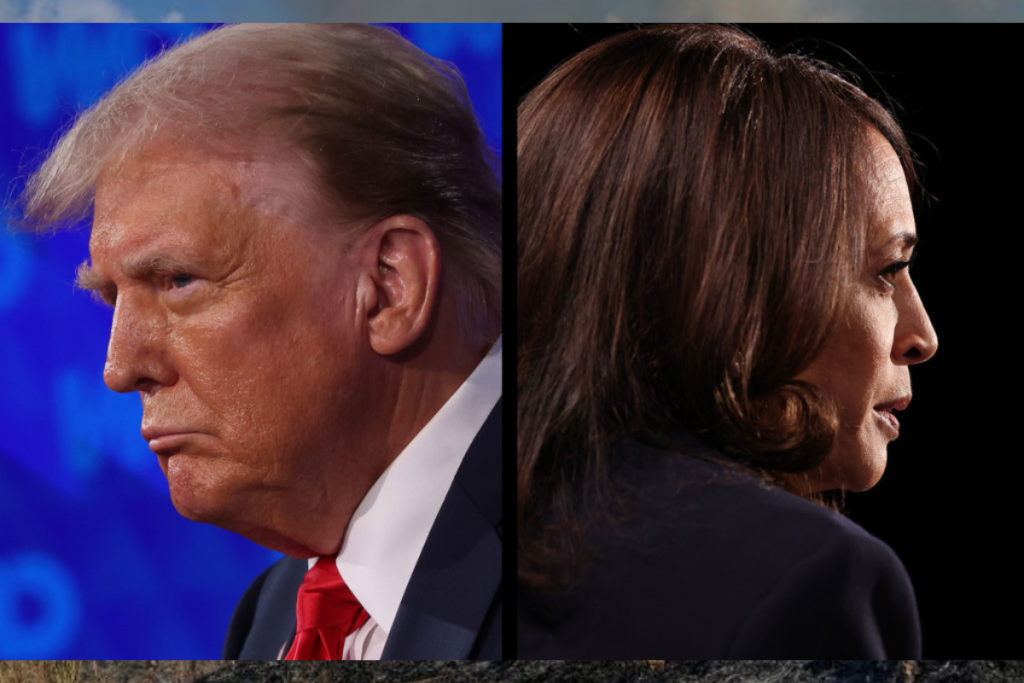
In the wake of the recent presidential debate between Kamala Harris and Donald Trump, Harris has seen a notable boost in her favorability ratings, positioning her as a key contender in the 2024 race. This single debate, likely the only direct encounter between the two candidates, sparked a shift in public sentiment. Harris, already riding a wave of support since President Biden exited the race in July, managed to sway undecided voters, particularly by highlighting her understanding of pressing national issues.
Debate Performance: Harris Gains Favorability
According to a CNN flash poll, Harris emerged as the clear winner, with 63% of viewers favoring her performance over Trump’s. This represents a significant jump, as pre-debate polling indicated a closer contest between the two. While Trump labeled the debate his “best ever,” Harris’s steady composure and sharp focus on policy details resonated with many voters. Post-debate, Harris’s favorability ratings rose from 39% to 45%, while Trump’s favorability remained static at 39%. This shift is part of a broader trend of growing support for Harris, which has been developing since July.
Economic Issues: Trump Maintains Edge
Despite Harris’s debate success, economic concerns remain a challenge for her campaign. Voters continue to favor Trump on economic issues, with 55% stating he would handle the economy better compared to 35% for Harris. This 20-point gap underscores one of Trump’s enduring strengths—his appeal to voters on matters related to the economy, job growth, and financial stability. Although Harris has focused on advocating for policies aimed at boosting the middle class, reducing income inequality, and creating sustainable jobs, Trump’s economic message remains a potent force for a large portion of the electorate.
Voter Intentions: Limited Changes Post-Debate
Interestingly, while Harris’s favorability increased, the debate did not significantly alter overall voter intentions. A vast majority—82%—of those watching the debate stated their voting preferences remained unchanged. Only 4% reported a shift in their candidate preference post-debate, reflecting the deep polarization of the electorate. This highlights the challenge Harris faces in converting Trump’s loyal base, even as she continues to gain ground among swing voters.
Strategic Outlook: Harris’s Campaign Momentum
Harris’s campaign strategy appears focused on capitalizing on the post-debate momentum, with her team emphasizing her relatability and ability to address issues affecting everyday Americans. Her message of unity, healthcare reform, climate action, and economic equality is designed to appeal to moderates and independents disillusioned with Trump’s leadership. Meanwhile, Trump continues to rally his core supporters by emphasizing his economic track record and criticizing Harris’s policies as too progressive.
Celebrity Endorsement: A Boost from Taylor Swift
One of the most unexpected developments following the debate was Taylor Swift’s official endorsement of Kamala Harris, which garnered widespread media attention. Swift’s endorsement, moments after the debate concluded, helped galvanize younger voters, a demographic critical to Harris’s electoral strategy. This high-profile endorsement underscores the importance of celebrity influence in modern politics and could serve to boost Harris’s appeal among younger, more progressive voters.
The Road Ahead: Harris vs. Trump in the Final Stretch
As the campaign enters its final stretch, both candidates will need to sharpen their messages. Harris’s ability to win over undecided voters will depend on her continued focus on economic issues, particularly how she plans to address inflation, job growth, and income inequality. For Trump, the economy remains his strongest card, but he will need to fend off growing concerns about his handling of other key issues, such as healthcare and climate change.
With Harris now leading by an average of 2.8 points in national polls, the race is far from over. The debate may have provided her with a much-needed boost, but both candidates will need to navigate the final months of the campaign with precision, as every vote will count in what promises to be a close and fiercely contested election (The Independent).
